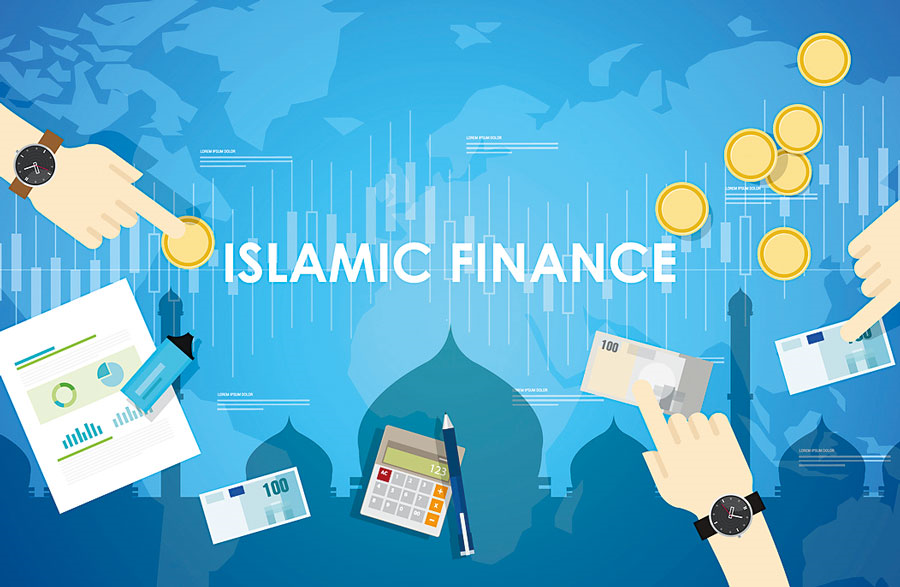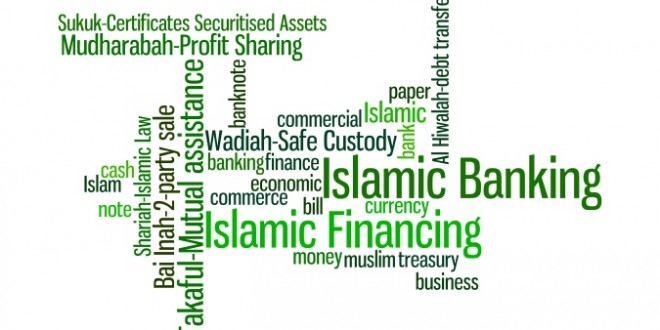The modern Islamic finance industry is young; its timeline began only a few decades ago. But Islamic finance is evolving rapidly and continues to expand and serve a growing population of Muslims as well as conventional, non-Muslim investors.
The core concepts of Islamic finance date back to the birth of Islam in the 6th century. Muslims practised a version of Islamic finance for many centuries before the Islamic empire declined and European nations colonized Muslim nations. The modern Islamic finance industry emerged only in the 1970s, in large part because of efforts by early 20th-century Muslim economists who envisioned alternatives to conventional Western economics (whose interest-based transactions violate Islamic law).
Islamic finance is a global financial system that complies with sharia (Islamic law) — a code of conduct that guides all aspects of Muslim life. Sharia prohibits certain elements that are common in conventional finance, such as interest and speculation. As the world’s Muslim population increases, the demand for Islamic financial firms and products is growing dramatically.
‘’ In total, more than 500 Islamic financial institutions have been established worldwide since the 1970s, including about 300 Islamic banks. In the past two decades, the Islamic finance industry has averaged growth of 14 percent per year, and its assets are estimated to be worth $1 trillion. Islamic financial institutions are currently operating in 75 Muslim and non-Muslim countries. ‘’

How did Interest come into the picture?
As absurd as it might sound, interest was not something that was common back in the past as it is today. Until the medieval ages, interest was a concept that was associated with greed and avarice and was severely frowned upon.
As we all know, the three pillars of the world from an economic perspective (markets, states, and community) were heavily influenced by religious institutions and authorities until the end of the 14th century. The three Abrahamic religions (Judaism, Islam, and Christianity) were the most prevailing religions at the time. These religions might have had innumerable differences and disagreements, but they all did agree on one amongst the very few things, interest, especially usury, was a societal evil that would have catastrophic consequences. If we refer to the original unaltered scriptures of these religions, we observe that interest (receiving as well as giving) was explicitly prohibited.
‘’If thou lend money to any of my people with thee that is poor, thou shalt not be to him as a creditor; neither shall ye lay upon him interest. ‘’
-Exodus 22:25
‘’Thou wicked and slothful servant, thou oughtest to have put my money to the exchanger, and then at my coming, I should have received mine own with usury. ‘’
-Mathew 25:27
Since all the three pillars were regulated by the religious institutions, it was possible to enforce these laws. However, with the advent of the 15th century, there was a paradigm shift that changed the course of history, religions were now obsolete, and trade and commerce were the new contemporary. The merchants and traders were the new rabbis and imams. They now heavily influenced the political and economic spectrums. Profitability and revenue had now replaced the earlier desired objectives of spirituality and salvation.
During that time, there was an increased demand for money and other resources by the state to fund voyages and travels to different parts of the globe to facilitate trade, as a result of this, interest payments became quite frequent. By the year 1546, the taking of interest for money was made legal in England, and later the whole of Europe. Several euphemisms were fabricated, and complex structures formulated to deceive the theologians and religious people. In the end, it had become an unavoidable concept and there was nothing anyone could do about it. Since then interest became a part and parcel of conventional Western economics.
Key Sharia Principles and Prohibitions in Islamic Finance
Sharia law differentiates Islamic finance from conventional finance. The Islamic financial system is constructed on economic concepts specified by sharia — a code of conduct that guides Muslims (the followers of Islam) in social, economic, and political matters. Sharia promotes balance and justice and discourages behaviors of excess.
Some of the core ideas promoted by sharia include the following:
God is the owner of all wealth. Humans are merely the trustees of wealth, which belongs to God. Humans must manage wealth according to God’s commands, which promote justice and prohibit certain activities, including wasting or destroying resources. Muslims have the right to enjoy whatever wealth they acquire and spend in sharia-compliant ways.
Material pursuits must be balanced with an individual’s spiritual needs. A Muslim’s economic activities and pursuit of wealth should balance with the spiritual aspects of life. Economic activity conducted according to sharia is, itself, an act of worship, but finding a balance between economic activities and spirituality is key. A Muslim is expected to seek moderation in the material world — to avoid being either miserly or too materialistic.
An individual’s needs must be balanced with society’s needs. A Muslim needs to consider society in general when enjoying Allah’s bounties. These considerations include promoting justice in all economic activities, remembering that all people have mutual responsibility for all others, and using the earth’s resources wisely.
Economic transactions should take place within a just, responsible, free-market economy. Islam does not restrict economic activity but instead directs it toward being responsible to other people, to the earth, and to Allah. Islam allows for a free-market economy where supply and demand are decided in the market, but it directs the function of the market mechanism by imposing specific laws and ethics. A primary purpose for imposing these laws and ethics is to promote social justice: a balance in which wealth is not accumulated only by a few while most others suffer.
In support of these principles, sharia prohibits business transactions based on the following:
Interest: Riba, the Arabic word for interest, means to increase, grow, or multiply into more than what would be due. Riba is prohibited by Islam because it creates societal injustice; in a riba-based transaction, the owner of the wealth gets return without making any effort, and the borrower carries all the risk.
Uncertainty: The Arabic word gharar means uncertainty or to cheat or delude. Transactions based on gharar are unclear or ambiguous; not everyone involved knows what to expect and can make an informed decision. Gharar exists when two parties enter a contract and one party lacks complete information or when both parties lack control over the underlying transaction.
Gambling: Two Arabic words — maysir and qimar — refer to transactions that involve gambling. Maysir is the acquisition of wealth by chance instead of by effort. Qimar refers to a game of chance. Both types of transactions are based on uncertainty; no one can know how a gamble will pay off.
Prohibited products and industries: Islam prohibits products and industries that it considers harmful to society and a threat to social responsibility. Examples include alcohol, pork, prostitution, pornography, tobacco, and any products based on uncertainty or gambling.
Islamic Financial Products Based on Sharia-Compliant Contracts

Under Islamic law (sharia), Islamic financial products are based on specific types of contracts. These Sharia-compliant contracts support productive economic activities without betraying key Islamic principles as some conventional financial products do. Sharia-compliant contracts cannot create debt, cannot involve the payment of interest, and must provide for a sharing of risk and responsibility between the involved parties.
To be valid, an Islamic contract must feature lawful subject matter, has to value for a Muslim, and is specific enough to avoid uncertainties. The service or asset described in the contract generally must exist when the contract is being created, must be owned by the seller (hence prohibiting short sales of stock, for example), and must be deliverable.
Here are some of the most commonly used contracts in Islamic finance:
Contracts of partnership allow two or more parties to develop wealth by sharing both risks and return:
i. Mudaraba: One party gives money to another party, which invests it in a business or economic activity. Both parties share any profit made from the investment (based on a pre-agreed ratio), but only the investor loses money if the investment flops. The fund manager loses the value of the time and effort it dedicated to the investment. (However, the fund manager assumes financial responsibility if the loss results from its negligence.)
ii. Musharaka: This contract creates a joint venture in which both parties provide investment capital, entrepreneurial skills, and labour; both share the profit and/or loss of the activity.
Contracts of exchange are sales contracts that allow for the transfer of a commodity for another commodity, the transfer of a commodity for money, or the transfer of money for money:
i. Murabaha: In this cost-plus contract, an Islamic financial institution sells a commodity to a buyer for its cost plus the profit margin, and both parties know the cost and the profit in advance. The buyer makes deferred payments.
ii. Salam: In this forward contract, the buyer (or an Islamic financial institution on behalf of the buyer) pays for goods in full in advance, and the goods are delivered in the future.
iii. Istisna: This second type of forward sale contract allows an Islamic financial institution to buy a project (on behalf of the buyer) that is under construction and will be completed and delivered on a future date.
Contracts of safety and security are often used by Islamic banks; these contracts help individual and business customers keep their funds safe:
i. Wadia: A property owner gives property to another party for safeguarding. In Islamic banks, current (checking) accounts and savings accounts are based on the wadia contract.
ii. Hawala: Debt is transferred from one debtor to another. After the debt is transferred to the second debtor, the first debtor is free from her obligation. This contract is used by Islamic financial institutions to remit money between people.
iii. Kafala: A third party accepts an existing obligation and becomes responsible for fulfilling someone’s liability. In conventional finance, this situation is called surety or guaranty.
iv. Rahn: A property is pledged against an obligation. A customer can offer collateral or a pledge via a rahn contract to secure a financial liability.
Ways in which Conventional and Islamic Commercial Banks Differ
Although Islamic commercial banks have many products similar to those offered by conventional banks, the two entities differ conceptually. One key difference is that conventional banks earn their money by charging interest and fees for services, whereas Islamic banks earn their money by profit and loss sharing, trading, leasing, charging fees for services rendered, and using other sharia contracts of exchange.
The following are four key ways that conventional and Islamic commercial banks differ.
The oversight of a sharia board
A sharia board consists of Islamic scholars who are qualified to give opinions on Islamic business contracts. In a commercial bank, the board is also involved in supervising bank operations to make sure they comply with sharia principles.
You may wonder why a bank needs a sharia board to ensure its compliance with sharia principles. If the basic distinction between conventional and Islamic banking hinges on interest, can’t Islamic banks satisfy the requirement by just making sure none of their transactions involves charging interest?
Islamic banks and other financial institutions must comply with a variety of principles besides avoiding interest. Islamic finance is based on four core principles:
- Prohibiting usury
- Avoiding speculation
- Avoiding gambling
- Investing ethically
Interpreting each principle is more difficult than you may think. Scholars spend their lifetimes learning all they can about the intent and past interpretation of sharia law, and they still often have differing opinions about it.
Making sure that Islamic banks comply with sharia isn’t easy — hence the necessity of the sharia supervisory board. This board is the backbone of an Islamic bank; it plays a vital role in establishing and operating the bank.
Concepts of money and the basis of transactions
To say that Islamic banks are different from conventional banks because the former don’t charge interest is accurate, but it’s only the tip of the iceberg. That difference is just one of many ways that the fundamentals of Islamic banking differ from those of conventional commercial banking.
The basic purpose of establishing an Islamic bank is to promote and encourage Islamic principles. Conventional banks are profit-making organizations that generally aren’t based on religious principles. That said, earning money is also a primary function of an Islamic commercial bank. Although the bank has a specific religious purpose, it can’t serve that purpose unless it also meets the objective of earning money.
A bank serves no purpose at all if it can’t stay in business!
Islamic banks operate based on Islamic business law (called fiqh-u–muamalat) for their basic transactions, and they also follow the financial laws and regulations of the countries in which they operate. Likewise, conventional banks operate based on a country’s financial laws and regulations; but they don’t have contact with any religious body.
Islamic scholars recognize that money has value, but with limitations. For example, money can’t become more valuable simply because time is passing. However, the value of money can increase if it’s invested in a project that itself is increasing (in size, in success, and so on).
Relationships with clients or customers
When you deposit your paycheck in a conventional bank, your relationship with that bank is one of a creditor to a debtor; the bank has a responsibility to pay back your money with or without interest according to your account contract. Similarly, the roles reverse when the bank provides you with a loan.
The relationship between a customer and an Islamic bank is completely different; the debtor and creditor relationship do exist at times in Islamic banking. To understand the relationship between the customer and the Islamic bank, you must know what contract that relationship is based on.
Investments in the bank
Investments in conventional commercial banks are based on guaranteed principal and earning a fixed amount of income.
For example, say that a customer in a conventional bank deposits $10,000 in a six-month term deposit. After six months, the bank has a liability to pay back the customer the principal plus the interest rate charged for six months. Even if the bank lost the money in an investment, the bank is still liable to pay back all the money due.
In Islamic banking, the concept of investment is different. Although a customer deposits the money to earn extra income for their savings, the principal and returns aren’t guaranteed. Suppose the Islamic bank loses money because of unexpected business failure. In this case, the bank isn’t liable to pay the money to its customer.
Here are some of the key events in the short history of the modern Islamic financial industry:
- In 1963, the Mit Ghamr Savings Bank in Egypt was opened, becoming the first modern Islamic bank on record.
- Also in 1963, the Pilgrims Saving Corporation of Malaysia — although not a bank — began to incorporate basic Islamic banking concepts.
- In 1975, the Islamic Development Bank opened in Saudi Arabia and gave the Islamic finance industry an international presence. It recruited member countries and then offered them financial products to promote economic and community development.
- In 1979, the first Islamic insurance (or takaful) company — the Islamic Insurance Company of Sudan — was established. (Muslims cannot purchase conventional insurance products because those products involve interest-based transactions, uncertainty, and gambling, which are all prohibited by Islamic law.)
- In 1986, the Amana Income Fund, the world’s first Islamic mutual fund (which invests only in sharia-compliant equities), was created in Indiana.
- In 1990, the Accounting and Auditing Organization for Islamic Financial Institutions (AAOIFI) was created to establish industry accounting and auditing standards.
- Also in 1990, the Islamic bond market emerged when the first tradable sukuk— the Islamic alternative to conventional bonds — was issued by Shell MDS in Malaysia.
- In 1996, Citibank began to offer Islamic banking services when it established the Citi Islamic Investment Bank in Bahrain.
- In 1999, the Dow Jones Islamic Market Index (DJIMI) was established, becoming the first successful benchmark for the performance of Islamic investment funds.
- In 2002, the Malaysia-based Islamic Financial Services Board (IFSB) was established as an international standard-setting body for Islamic financial institutions.
- In 2004, the Islamic Bank of Britain became the first Islamic commercial bank established outside the Muslim world.
Follow Us @




